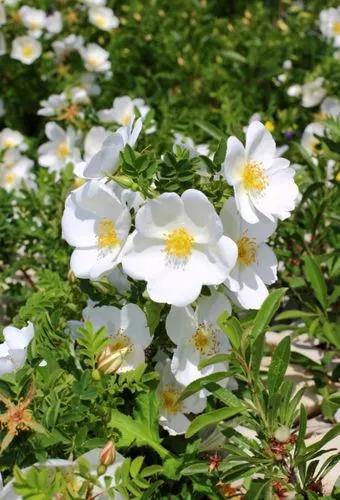Chrysanthemums are common gift plants and can be found as such year around. This is because they have been tricked into blooming by either hormones or manipulation of light exposure. Chrysanthemum houseplants require lower light to force blooms. They can be quite difficult to get to re-bloom in an interior setting, but in warmer climes should be planted outside where they can get the appropriate lighting and resume their normal bloom schedule. Potted mums are not the same as the hardy varieties that go into garden beds. They are more sensitive to cold and light changes, but you can find them any time of the year and bloom for several weeks in the home interior. Growing chrysanthemums indoors is easy and requires little special care beyond watering, good soil and drainage. Once the blooms are spent, you can keep the plant around for its deeply etched foliage.
Boval Mum Care
Chrysanthemums



How to Care for the Plant

Water

It is very important that mums establish a good root system. The deeper the roots, the more likely the plant will survive very hard freezes and even drought conditions. To encourage deep root growth, water your soil so that it is wet down to a depth of 6 to 8 inches. Mums do not like to get dry. Insert a stick into the soil and see if it is damp at that depth. Soil should remain moist, but not soggy. Soggy soil can cause root rot and other diseases. It can be difficult for a mum to bounce back once it has been over watered.

Pruning

If you want fall flowers on your mums, you will need to trim the plants back periodically throughout the summer. Start when the plants are about 4 to 5 inches tall and repeat every 2 to 3 weeks until about mid-July. This will cause the plant to get stocky and bushier, and by late summer, it should be covered with flower buds.

Fertilizer

It is important to provide nitrogen and potassium to mums during their vegetative phase. Feed the plants before flower buds form to promote healthy roots, bud development, and a vigorous plant. Start a feeding cycle in April or May. You can get a time-released fertilizer (12-6-6), which feeds the plants for about three months. With this fertilizer, you might only need to feed the plants once. The general rule of thumb is to begin after all danger of frost has passed. That way any new growth forced by the nutrients will not be in danger of damage from icy weather. Established plants should not be fed after July, so new growth is not injured by frost.

Sunlight

Chrysanthemums are sun-loving plants. Although they technically require only 6 hours of sunlight each day, the more light they receive, the better their growth, bloom and hardiness.

Soil

Mums can survive in most soils, but they thrive in well-draining soil with consistent moisture. Growing mums in hard, dry soil prevents the roots from becoming well established, while wet, boggy soil drowns the roots. Finding the middle ground is key.

Temperature

If have high temperatures occur, particularly at nighttime, it can cause the plant to flower later than it normally would. Heat delay can cause irregularly formed flower buds, erratic flowering, deformation of the plant’s crown and other developmental issues. Cool temperatures don't bother mums. In fact, chilly weather intensifies colors and keeps blossoms looking fresh until a hard, killing frost drops the curtain on the gardening year

Popularity

1,033 people already have this plant 196 people have added this plant to their wishlists
Discover more plants with the list below
Related articles






